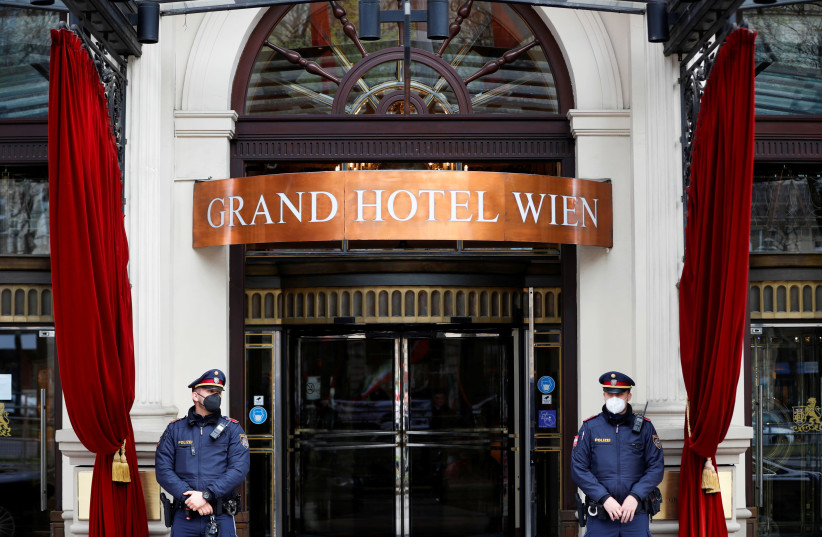Hours after the nuclear talks in Vienna had concluded their first day, Iran was already declaring victory.
What was the victory?
It depends on who you ask.
Islamic Republic’s officials said that they had succeeded in keeping the talks focused on sanctions relief as opposed to nuclear limitations.
They also said that they had succeeded in getting the world powers to agree to toss out the understandings reached in June so that they could press for more concessions.
But if you read between the lines of the different Iranian officials’ statements, all they achieved was that the sanctions relief working team meeting would occur before the nuclear limitations working team.
Yet, both groups will still be meeting.
This smacks of a classic move by Tehran to try to save face and proclaim a victory for its domestic audience, while knowing it has to swallow the pill of give-and-take negotiations if it wants to get anywhere or even pretend to have had good faith.

Likewise, there is no sign that the June understandings have been tossed out the window.
But in the areas where real-world changes in 2021 are different than the 2015 JCPOA (Iran has hundreds more advanced centrifuges, and the Trump administration imposed some nuclear sanctions that are labeled as non-nuclear), and they may take a more aggressive posture where nothing was finalized.
Even this scenario will not be to Israel’s liking. Israel opposes any talks that are not built on drastically strengthening and lengthening the JCPOA.
However, it is a far cry from an Iranian victory.
The other development to watch is an unsubstantiated story in Axios on Monday night saying that Israel has a genuine concern that the ayatollahs may soon up their uranium enrichment level from the current 60% to the weaponized level of 90%.
According to the report, this would be a trump card for Iran to pressure the world powers into further concessions just to get it to stop its progress.
Although Iran would still need between six months and two years to solve certain detonation and delivery issues, this would be crossing a radically new line, and would make it very difficult to put Tehran’s nuclear program back in a box.
Is this all spin for Israel to rally the West (or for the US to pressure Israel into accepting the necessity for a deal) against Iran, or could the Islamic Republic really jump to 90% in a mere period of weeks?
Former IAEA official and current Stimson Center fellow Olli Heinonen said the scenario was quite realistic.
“With stocks of 20% and/or 60% of uranium as uranium hexafluoride, less than a month is required to produce enough 90% enriched uranium hexafluoride UF6,” he said. “It would take less than a month to turn that in small batches to uranium metal, which can then be machined to weapon components.”
Furthermore, he said, “You do not need that many centrifuges to go from 60% to 90%.”
Heinonen presented a scheme given by Pakistani nuclear guru A Q Khan to his clients (including Iran) in the mid-1990s, noting one can see that the step “requires only 128 centrifuges when using P-2 [Pakistani centrifuges] or IR-2m centrifuges [a medium-advanced Iranian centrifuge]. If you use more powerful centrifuges, e.g. IR-6, the number is smaller.”
He said that Iran would not even need all of the centrifuges it is already operating at Natanz and Fordow.
The Iranians then have two options, Heinonen said: "Change the configuration of a current cascade to make it optimal for 90% enriched uranium production, or install new cascades.”
Technically speaking, some preparatory moves Iran would need to take would include feeding “60% enriched uranium and collect[ing] 90% enriched product,” which would mean needing “to have separate small feed and withdrawal stations with their own pipework. If manufactured in advance, the installation and testing will take about two weeks.”
Former Israeli intelligence officials had mixed opinions about whether the Axios story was real or spin.
If real, it could force both the US and Israel to make more fateful decisions sooner than they might like.
Until then, it is much too soon to judge the direction or progress of the latest Iranian nuclear talks, despite Iranian claims of victory.
